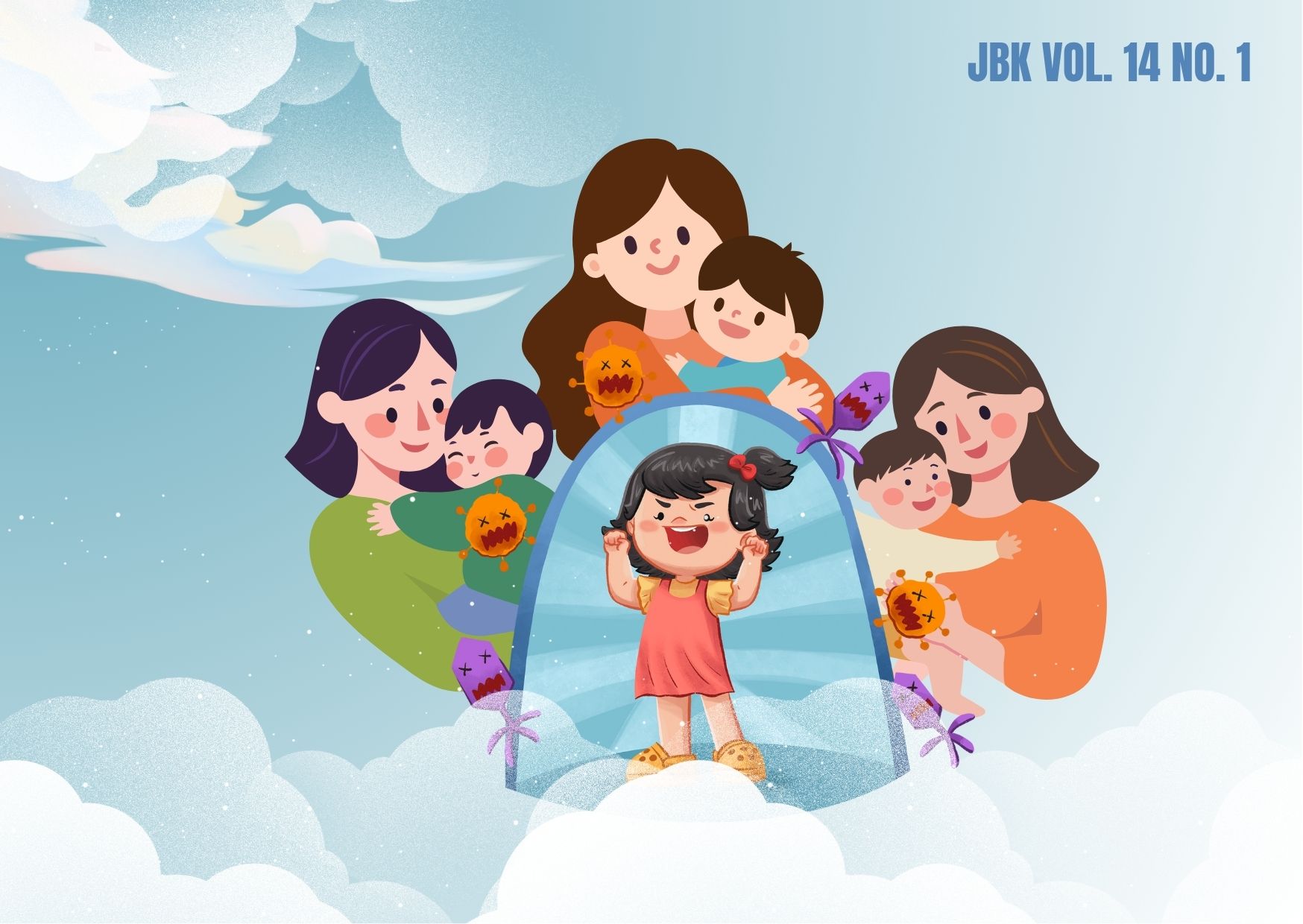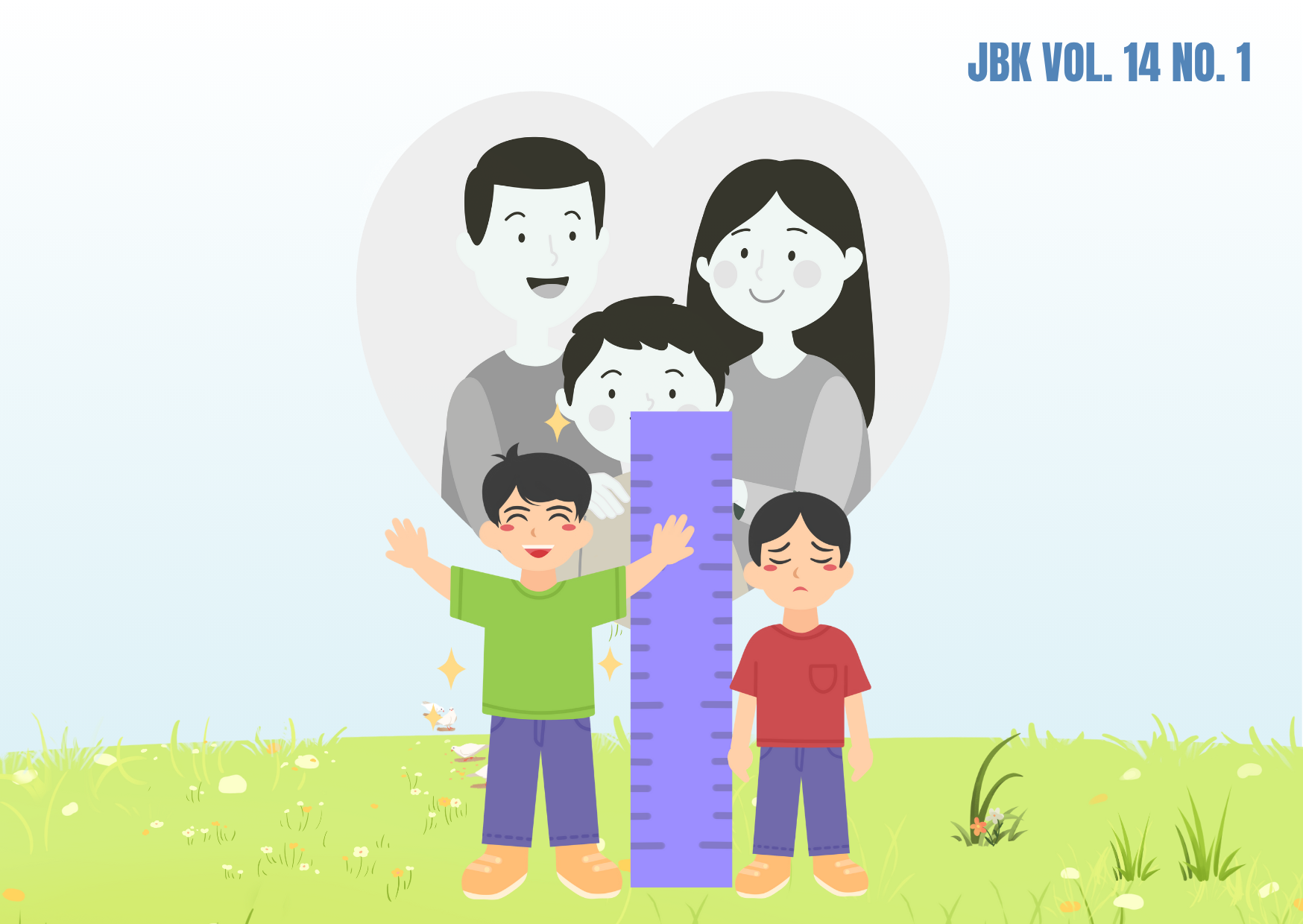BUILDING KINSHIP NEGOTIATIONS: DEFINITION OF SOCIAL PROTECTION FOR CHILDREN OF INDONESIAN MIGRANT WORKERS

Downloads
This study examines how children of Indonesian migrant workers construct their own social protection and navigate relationships within extended families. This study explores how social protection emerges through kinship negotiations based on children’s perceptions. When parents migrate for work, children face challenges and rely on extended family members for care. Using a qualitative phenomenological approach, this study identifies patterns of kinship negotiations that shape social protection. Data were collected through in-depth interviews with children aged 7–15 in East Katol Village, Madura, Indonesia, who live with extended families due to parental migration. Findings reveal that children perceive social protection as central to familial relationships, engaging in negotiations embedded in kinship traditions. They extend protection beyond biological relatives, including non-relatives considered "like family." Protective interactions involve both family and non-family members, addressing care management and economic needs. This study provides insights into institutional social protection for children of migrant workers from social, psychological, and economic perspectives. These findings collectively offer valuable theoritical insight into the dynamics of family kindship and negotiation in shaping social protection, while also providing practical implications for the development of more effective and inclusive social welfare policies. This study emphasizes that the existing pattern of social protection through family kinship negotiation is not fully provided by the government.
Fre Z, Tsegay B, Teka AM, Kenton N, Livingstone J. Social Protection, Pastoralism and Resilience in Ethiopia Lessons for Sub-Saharan Africa [Internet]. 1st ed. Routledge; 2024. 276 p. Available from: https://www.routledge.com/Social-Protection-Pastoralism-and-Resilience-in-Ethiopia-Lessons-for-Sub-Saharan-Africa/Fre-Tsegay-Teka-Kenton-Livingstone/p/book/9781032067124?srsltid=AfmBOoojgFedekz7uFkTe8Q5lFANd5kqp14nH6jN3bktkr44Bx-ipyt-.
Lopez-Velasco AR. Social security as Markov equilibrium in OLG models: Clarifications and some new insights. Econ Lett [Internet]. 2022;217:110707. Available from: https://doi.org/10.1016/j.econlet.2022.110707
Zakharov A. Overestimation of social security payments reduces preferences for spending on social policy. Eur J Polit Econ [Internet]. 2024;85:102557. Available from: https://doi.org/10.1016/j.ejpoleco.2024.102557
Lv W, Ma W, Yang X. Does social security policy matter for corporate social responsibility? Evidence from a quasi-natural experiment in China. Econ Model [Internet]. 2022;116:106008. Available from: https://doi.org/10.1016/j.econmod.2022.106008
Lee S, Tan KTK. Bequest motives and the Social Security Notch. Rev Econ Dyn [Internet]. 2023;51:888–914. Available from: https://doi.org/10.1016/j.red.2023.09.001
Ayuya OI. Ethnicity, social connectedness, and the rural-urban food continuum: Food security among urban informal settlement dwellers in Kenya. Heliyon [Internet]. 2024;10(9). Available from: https://doi.org/10.1016/j.heliyon.2024.e30481
Lee RW, Choi SH, Hu SH. Effect of temporal distance and goal type on predictions of future information security: Focus on moderation of self-efficacy and social responsibility. Acta Psychol (Amst) [Internet]. 2023;(103990). Available from: https://doi.org/10.1016/j.actpsy.2023.103990
McKiernan K. Social Security reform in the presence of informality. Rev Econ Dyn [Internet]. 2021;40:228–51. Available from: https://doi.org/10.1016/j.red.2020.10.001
Simpson J, Albani V, Bell Z, Bambra C, Brown H. Effects of social security policy reforms on mental health and inequalities: A systematic review of observational studies in high-income countries. Soc Sci Med [Internet]. 2021;272:113717. Available from: https://doi.org/10.1016/j.socscimed.2021.113717
Zhang J, Luximon Y. Interaction design for security based on social context. Int J Hum Comput Stud [Internet]. 2021;154:102675. Available from: https://doi.org/10.1016/j.ijhcs.2021.102675
Kristina A. Mengatasi Permasalahan Perlindungan TKI dengan Desain Kelembagaan Jaminan Sosial. Jakarta: Penerbit Media Sains Indonesia; 2021.
Riyanto AM, Qiram I. Identifikasi Sistem Perlindungan Anak dengan Orang Tua Berstatus Buruh Migran di Desa Kedungrejo Kecamatan Muncar Kabupaten Banyuwangi. Citizsh J Pancasila dan Kewarganegaraan [Internet]. 2020;8(1):62–7. Available from: https://scholar.google.com/citations?view_op=view_citation&hl=en&oe=ASCII&user=zCo7fLMAAAAJ&pagesize=100&sortby=pubdate&citation_for_view=zCo7fLMAAAAJ:bEWYMUwI8FkC
Jasiyah R, Pratiwi ET, Katjina H, Panggabean CIT, Mayunita S, Oktavyanti ND. Pelatihan Strategi Mengelola Stres dan Kecemasan pada Anak. Community Dev J J Pengabdi Masy [Internet]. 2024;5(2):3335–41. Available from: https://doi.org/10.31004/cdj.v5i2.27032
Valdez CR, Herrera N, Wagner KM, Ables A. Mexican Immigrant Parents’ Hopes for Their Children and Parenting Strategies in Different Immigration Climates. Fam Process [Internet]. 2021;61(3):1324–40. Available from: https://doi.org/10.1111/famp.12724
Kaveh MH, Sadeghi S, Motamed-Jahromi M. Which mother-headed households’ parenting style are related to their children’s behavior problems? A cross-sectional study. J Prev Med Hyg [Internet]. 2022;63(1). Available from: https://doi.org/10.15167/2421-4248/jpmh2022.63.1.2382
Xu K. Digital finance, social security expenditures, and rural-urban household income poverty. Evidence based on an area and household level analysis. Financ Res Lett [Internet]. 2024;60:104845. Available from: https://doi.org/10.1016/j.frl.2023.104845
Hidayat MA, Dzulkarnain I, Ruwaida I, Kristina A. Bargaining for the Good Fate: An Ethnography of the Social Mobility of Madurese Migrant Traders in Jakarta. Innov J Soc Sci Res [Internet]. 2024;4(2). Available from: https://doi.org/10.31004/innovative.v4i2.9630
Kristina A. Belajar Mudah Metodologi Penelitian Kualitatif. Jakarta: Penerbit Rumedia; 2020.
Kristina A. Mengupas Daya Tahan Bisnis Saat Pandemi covid 19 Melalui Fenomenologi. Khanafi A, editor. Sleman: Deepublish; 2023.
Kristina A. Teknik Wawancara Dalam Penelitian Kualitatif. Sleman: Deepublish; 2024.
Sembiring GP. Kearifan Lokal Pada Sistem Kekerabatan (Dalihan Na Tolu dan Rakut Si Telu) Pada Masyarakat Batak Toba. J Sade Publ Ilmu Pendidikan, pembelajaran dan Ilmu Sos [Internet]. 2024;2(2). Available from: https://doi.org/10.61132/sadewa.v2i2.848
Agustin D, Lailiyah NR, Fadhil M, Arya MF. Kajian Ornamen Pada Rumah Tradisional Madura. Nalars Juranl Arsit [Internet]. 2020;19(2). Available from: https://doi.org/10.24853/nalars.19.2.97-104
Nupus H. Remitansi dan Pemanfaatannya (Studi pada Pekerja Perempuan Indonesia di Pabrik Pulau Penang Malaysia). J Soc Humanit Educ [Internet]. 2024;13(1). Available from: https://doi.org/10.55606/concept.v3i1.1082
Zhu D, Xu H, Yao Y. The Wellbeing of Chinese Migrating Grandparents Supporting Adult Children: Negotiating in Home-Making Practices. Int J Environ Res Public Health [Internet]. 2022;19(16). Available from: https://doi.org/10.3390/ijerph19169903
Lee JK, Marshall AD, Feinberg ME. Parent-to-child aggression, intimate partner aggression, conflict resolution, and children’s social-emotional competence in early childhood. Fam Process [Internet]. 2022;61(2):823–40. Available from: https://doi.org/10.1111/famp.12701
Maines D. Social Organization and Social Process [Internet]. New York: Routledge; 2024. Available from: https://doi.org/10.4324/9781003571803
Tripon C. Nurturing Sustainable Development: The Interplay of Parenting Styles and SDGs in Children’s Development. Children [Internet]. 2024;11(6). Available from: https://doi.org/10.3390/children11060695
Copyright (c) 2025 Jurnal Biometrika dan Kependudukan

This work is licensed under a Creative Commons Attribution-NonCommercial-ShareAlike 4.0 International License.
Copyright©2022 Jurnal Biometrika dan Kependudukan (Journal of Biometrics and Population)
This work is licensed under a Creative Commons Attribution-NonCommercial-ShareAlike 4.0 International License.
1. Copyright of all journal manuscripts is held by the Jurnal Biometrika dan Kependudukan.
2. Formal legal provisions to access digital articles of the electronic journals are subject to the provision of the Creative Commons Attribution-ShareAlike license (CC BY-NC-SA), which means that Jurnal Kesehatan Biometrika dan Kependudukan to keep, transfer media/format, manage in the form of databases, maintain, and publish articles.
3. Published manuscripts both printed and electronic are open access for educational, research, and library purposes. Additionally, the editorial board is not responsible for any violations of copyright law.



































